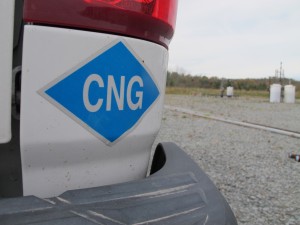Philadelphia considers switching city vehicles to CNG
-
Katie Colaneri
Philadelphia is weighing the pros and cons of switching some of its 5,800 city vehicles to ones that run on compressed natural gas.
Our friends at StateImpact Pennsylvania partner station WHYY report city officials are hesitant to launch a full-scale fleet conversion:
Philadelphia fleet manager Chris Cocci said he would not want to use natural gas for police cruisers or fire trucks, though he’s open to it for other purposes.
“We do not want to put any public health and safety vehicles relative to the fire department or the police department in that arena,” he said. “We believe the technology, as far as refuse vehicles, is well advanced and could sustain it.”
Proponents told City Council compressed natural gas is an economical alternative costing about a dollar less per gallon that gasoline.
But Sandra Folzer, an activist against natural gas drilling, testified that savings could evaporate.
“There are many hidden costs, they don’t get as much mileage, they use at least 10 percent more fuel per vehicle, so that is more of an expense,” she said.
Compressed natural gas or CNG has been slow to catch on as a transportation fuel, but is seeing a rise among municipalities and businesses that operate large fleets of heavy-duty vehicles.
The state is encouraging CNG conversions through its Alternative Fuels Incentive Grant program. Last month, the Philadelphia Gas Works received a $240,000 grant to buy 50 CNG vehicles “to demonstrate to PGW customers the financial viability of CNG as a fleet fuel,” according to a press release from the state Department of Environmental Protection.

















